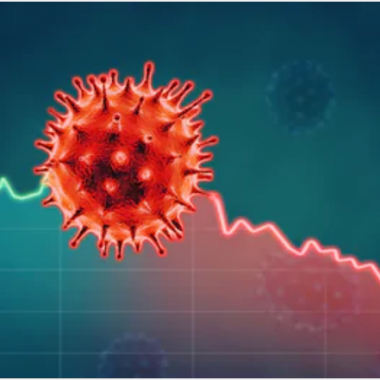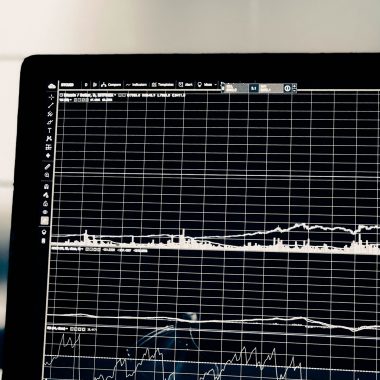The American historian and sociologist Christopher Lasch wrote in 1991 in ‘The True and Only Heaven’ about his astonishment at the apparent and, in his view, illegitimate sense of superiority of social and cultural liberalism: ‘This inquiry began with a deceptively simple question. How does it happen that serious people continue to believe in progress, in the face of massive evidence that might have been expected to refute the idea of progress once and for all? Why is it that serious people continue to believe in progress, in the face of massive evidence that might have been expected to discredit the idea of progress once and for all?)
His observation dates from the early 1990s, at the peak of the Atlantic alliance’s solidity and in a period of geopolitical triumph for a then largely unified West. However, Lasch’s analysis now seems to be gradually losing its relevance even in the field of geopolitics, at least in Europe, in the face of the accumulation of shocks suffered by the continent. The latest example is the prospect of the death of the military alliance between the two sides of the Atlantic, mentioned lightly and almost enthusiastically by Donald Trump. This revealing moment, during which the Republican candidate took it upon himself to encourage Russia to attack European states which, in his view, were not meeting their obligations to finance their own defence, is particularly distressing in the context of the war in Ukraine, which might have seemed to temporarily breathe new life into NATO.
Many in the European Union and among the United States’ historic allies saw this statement by the former US President as further proof that progress and calm confidence in the physical preservation of their nations were no longer a certainty. The announcement of the death of Russian opposition figure Alexei Navalny a few days later, which confirmed for many the absence of the slightest desire for moderation within the Russian government, also made this shock even more acute for many Europeans.
Donald Trump’s speech must of course be seen in the context of his election campaign, in front of a largely ultra-conservative and isolationist crowd in a Southern state that is overwhelmingly Republican. But while it was not necessarily surprising, it did enable this subject (‘NATO TRUMP’) to reach new heights of visibility on all platforms, at levels not seen for several years. Records like these are likely to be surpassed throughout the election campaign and over the next few years if, as the polls suggest, Donald Trump is returned to the Oval Office in January 2025. Above all, they are a clear reminder that geostrategic issues, made inescapable by the outbreak of war in Ukraine, are taking on a growing and sometimes dominant role in online political debates.

Digital fallout from the ‘NATO Trump’ issue over the last year, with a massive peak immediately after Donald Trump’s statements in South Carolina on 10 February.
Over 98 million accounts were exposed to the subject in the week following Donald Trump’s speech alone. What’s more, the tone of the messages linked to this theme was 95% ‘negative’ (i.e. marked by expressions of anguish, anger, concern and rejection), a level almost unheard of on the various social networks. Not only is a possible future President of the United States calling into question the principles of Article 5 of NATO (guaranteeing the protection of a member state in the event of an attack), but he seems to be undermining it even further by going from the threat of a lack of support to a clear encouragement of the offensive by the historical geopolitical adversary, turning it into a negotiating tool with European states presented as immature ‘free riders’ who should be punished.
The official reaction came in particular from Stéphane Séjourné, the French Minister for Foreign Affairs and Europe, but also, interestingly, from Radek Sikorski, his Polish counterpart, from the pro-European current of a country whose military spending has massively increased in recent years, under the historical and contemporary pressure of the Russian threat.
It’s even more urgent now.https://t.co/yoMpuT6D4y
— Radek Sikorski (@radeksikorski) February 11, 2024
Sikorski, who has also been asked to join Brussels in a post linked to the organisation of a defence policy for the European Union, reminds us that the guarantee of the American nuclear umbrella, which is taken for granted in Central and Eastern Europe, is no longer a given. The troubled reactions of German leaders confirm the deep sense of disquiet in a part of Europe that is still unaccustomed to thinking in military and geostrategic terms, and which had hoped that Donald Trump’s defeat in 2020 would put a definitive end to the difficult interlude of his presidency. The movement to build an at least partially autonomous European security, historically supported by France, could find new impetus here, as could the possible revival of the Weimar Triangle linking France, Germany and Poland in a central military belt for the continent.
Everything, from the scale of the digital reaction to the frustration perceptible in the public responses, via the desire to reassure through a new offensive of major European strategic declarations, seems to stem from the same observation: the loss of the American life insurance policy for European security is confronting the continent with a veritable vertigo of weakness, which will be violently realised if Donald Trump or the proponents of a foreign policy similar to his were to regain power in Washington.
This European anxiety is also perfectly embodied in the associations of notions spotted online over the last few days. Occurrences of the terms ‘Europe alone’ and ‘Russia attack’ have soared to unprecedented levels since Trump spoke on the subject.

The digital impact of ‘NATO Trump’ (pink), ‘attack Russia’ (blue) and ‘Europe alone’ (purple) over the past year confirms a massive and clearly joint peak for all three topics in recent days.
This situation is an obvious breeding ground for more general social anxiety, and intersects with economic concerns about purchasing power, which carry even more weight for the majority of the public. This military ‘vertigo of weakness’, which is linked to a massive feeling of economic dispossession and decline, is clearly illustrated on social networks and the accounts of European leaders, where it is undoubtedly just one of the ways of expressing the deep-seated anxiety running through the continent’s capitals (as it probably is in London or Ottawa).
This latent feeling of fragility is already having a measurable impact on public opinion online, and is further destabilising the basic pillars of our societies (physical security, stabilised borders, peace, and hope – already almost shattered – for a better future for our children). Perhaps it will also spur us into action and into making public policy choices that are more consistent with geopolitical realities, as demonstrated by the massive increases in the defence budgets of certain states and the discussions on a ‘second nuclear life insurance policy’ for Europe around the French weapon.
By Guillaume Alevêque










